“Though it can feel like an overwhelming task, together we can change the impact of plastics on our environment until our city is able to install its own official plastic ban.”


“Though it can feel like an overwhelming task, together we can change the impact of plastics on our environment until our city is able to install its own official plastic ban.”

Pride events in smaller towns foster community, support homegrown talent and highlight local services, such as gender-affirming health care.
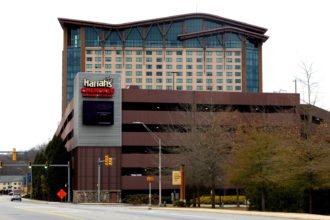
North Carolina can support as many as nine Las Vegas-style casinos with gambling throughout the state, including one in the Asheville area, according to a report commissioned by the General Assembly.
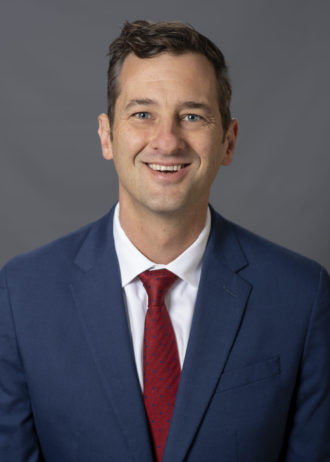
The local business group’s annual event usually features WNC’s General Assembly delegation and its reflections on happenings in Raleigh. This year, the entirety of Buncombe County’s incoming state House contingent was absent: As newly elected officials, Eric Ager, Lindsey Prather and Caleb Rudow were taking part in orientation at the capitol.

Supporters of medical marijuana and the local hemp industry want to see the state allow the use of cannabis as a treatment option for debilitating medical conditions. But there are disagreements with Senate Bill 711 as written.

Billed as a wrap-up of a busy year for WNC’s state legislative delegation, much of the Dec. 10 gathering hosted by the Asheville Area Chamber of Commerce wound up being devoted to the future of the General Assembly — a future that, following a Dec. 8 order by the North Carolina Supreme Court, faces many unknowns.

Among the largest allocations are $12.2 million to accelerate the purchase and opening of Pisgah View State Park in Buncombe County, $7.2 million for the removal of hazardous dams in WNC and $5 million to upgrade the city of Hendersonville’s wastewater treatment plant.
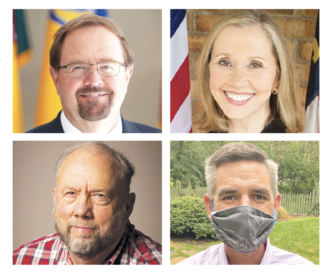
Chief among the issues facing the General Assembly next year, said Sen. Chuck Edwards, would be balancing the state’s next budget to reflect pandemic-driven downturns in revenue. He estimated that the shortfall compared to current spending levels could be as much as $8 billion.
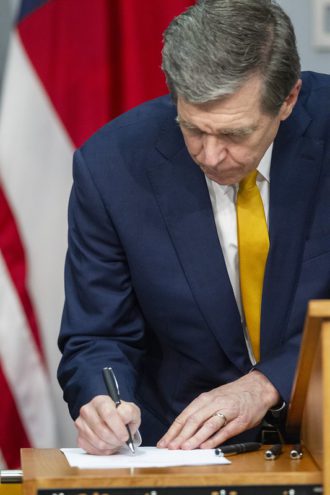
The two bills signed into law by Gov. Roy Cooper on May 4, both unanimously passed by the General Assembly, together designate nearly $1.6 billion for the state’s COVID-19 response and grant flexibility in many areas of regulation.

A total of 19 candidates are currently in the running for Rep. Mark Meadows’ 11th Congressional District seat, including 12 Republicans, five Democrats and one candidate each from the Green and Libertarian parties. But even beyond that contentious federal race, the 2020 election season promises plenty of action for Western North Carolina.
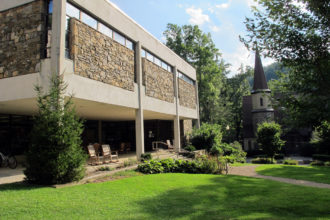
The money contained in a stalled budget bill that passed the General Assembly would go to Montreat College, a school in eastern Buncombe County with an enrollment of fewer than 1,000 students. $20 million would be used to establish a center to train people to protect digital information and systems.
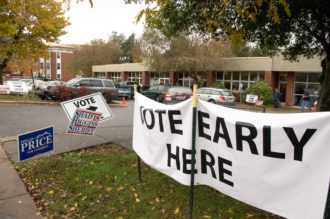
Despite concern that a state law passed in June could stifle early voting numbers, counties in Western North Carolina have seen turnout more consistent with a presidential election than a midterm.

Besides weighing in on assorted candidates for public office, voters in the March 15 primaries will also have the chance to help decide whether North Carolina should issue $2 billion worth of bonds to address various infrastructure needs.
Last year, relations between the North Carolina General Assembly and the city of Asheville were marked by hostility, public wars of words and even a lawsuit. At a special meeting yesterday, March 18, however, multiple Asheville City Council members expressed a desire to improve things this year, even though looming legislation could cost the city further revenue. They also signed off on efforts to better coordinate the city’s own lobbying efforts in Raleigh.
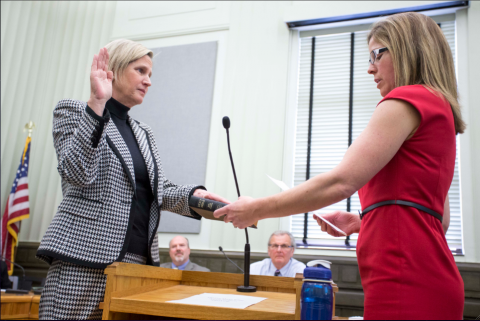
Today Asheville City Council appointed Robin Currin as the new city attorney, formally swearing her in at a special meeting. Currin, a Raleigh-based attorney with experience in local government, land and zoning law, will take office on May 1. Photo by Alicia Funderburk.
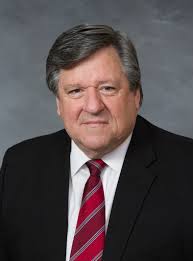
State Senator Martin Nesbitt, the minority leader and longtime Democratic legislator from Asheville, died yesterday at age 67.
While Friday’s part of Asheville City Council’s annual retreat focused on broad policy matters, Saturday morning’s session focused on perceptions (including “very bad” ones) and relationships (sometimes not very happy ones) with the legislature in Raleigh and the local public.
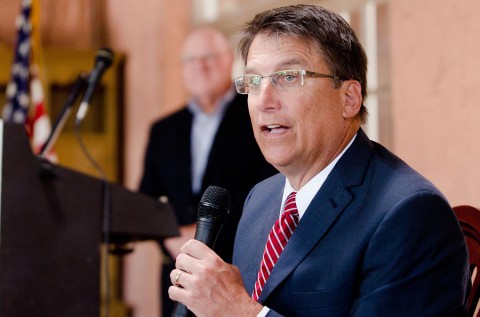
Gov. Pat McCrory spoke to the Council of Independent Business Owners this afternoon, asserting he was “stepping on some toes” to lower taxes and make the state run more like a business.
To a packed house at the Diana Wortham Theater last night, leaders of local and state organizations condemned the policies of the North Carolina General Assembly and heard concerns from local citizens.
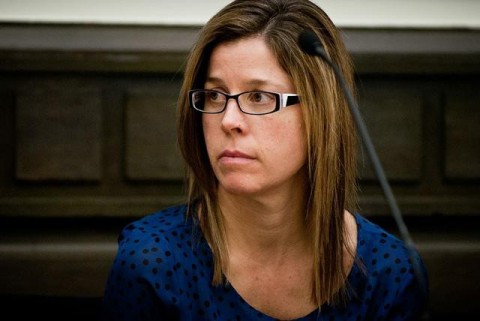
Behind-the-scenes negotiations over a lawsuit, a push from Raleigh to force district-based elections for Asheville, and the fate of a parks-and-recreation bill that could save city government millions — all this and more are revealed in emails between Council members, city staff and North Carolina legislators. Recently obtained by Xpress, the documents show a candid […]
At the end of a rollercoaster budget season marked by dire predictions, unpredictability at the state level, and Asheville City Council members trying to find the cash for their own plans, there’s finally a vote on the budget this evening. For the first time since 1995, city residents could see a major tax increase, intended to pay for an “aspirational” list of major projects.